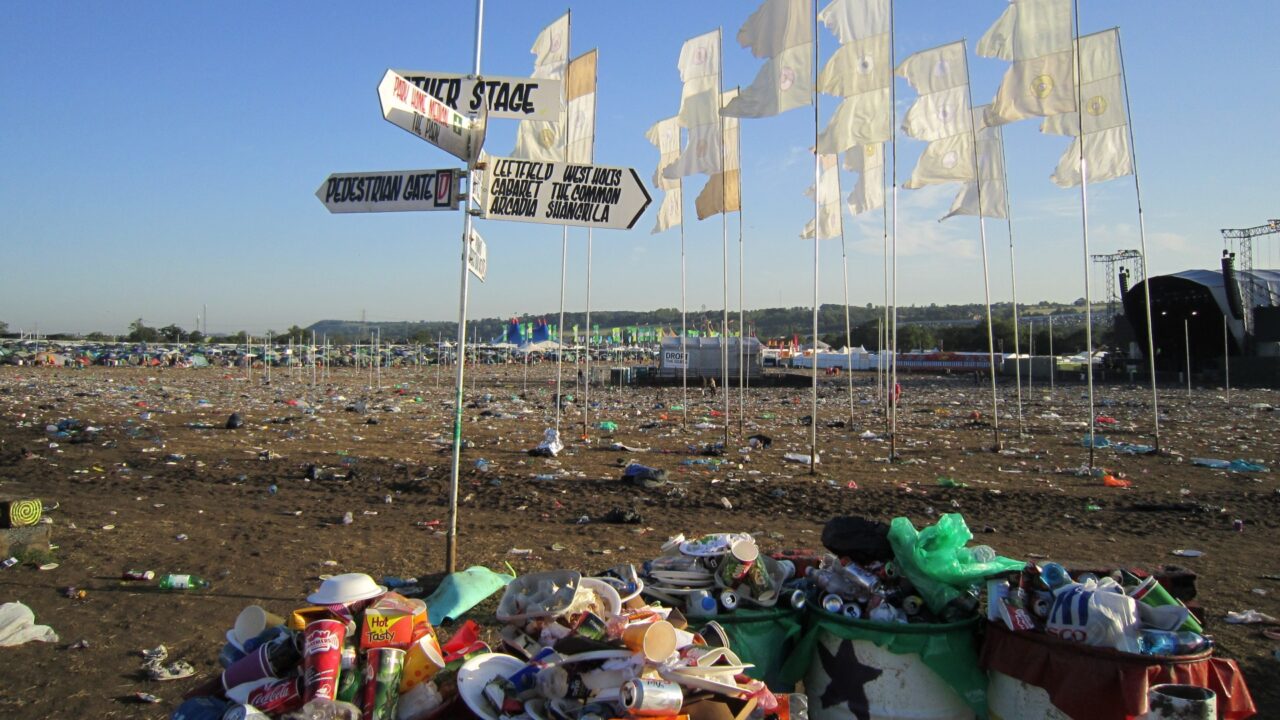Every time festival season rolls around in the UK, attendees make headlines for destroying the sites (and their livers alongside them). In other parts of Europe, this recklessness is less common – or at least less renowned. Should we be looking beyond British borders for an example of how to regulate environmental impact and substance use at multi-day music and arts events?
Whether you’ve found yourself in the midst of a tent-burning ritual or braved the portaloos on day four, chances are you’re aware of the substance-induced carnage that frequently occurs at UK festivals.
It’s also likely that you will have borne witness to medical tents overflowing with young people who’ve either never had so much to drink or who’ve swallowed something a bit stronger that doesn’t really agree with them.
If not this, then you’ll definitely have seen troops of teenagers dragging their incoherent mates away to ‘sleep it off’ before heading out again for round two.
This, it seems, has become the norm at most of the multi-day music and arts events that take place across Britain every summer.
While festival season is a golden opportunity to see your favourite artists, mess around in a field, and wear the most extravagant items in your wardrobe, arguably too many young Brits have begun viewing it as an invitation to get absolutely sloshed.
Despite the average binge drinking age in the UK being men aged 55 to 64, festivals – which are targeted towards 30-year-olds and under – are now the epitome of British drinking (and drug) culture, to the extent that it’s completely transformed the landscape of these events.
From groups of friends swapping coffee with Carlsberg before they’ve even brushed their teeth to barely-sixteen-year-olds shouting obscenities at passers-by or begging the nearest stranger for gum in-between gurns, it’s not uncommon that this lot winds up later populating the heavily congested medical tents.
And for those who manage to avoid needing help, it’s chaos that they choose, hauling tents onto makeshift fires like something straight out of Lord of the Flies.
View this post on Instagram
These are usually the same hordes of attendees who clear out before clearing up once it’s ended, leaving mounds of litter and leftover supplies to be gathered by volunteers and deposited in the nearest dump.
Reading and Leeds are most notorious for this kind of site (and liver) destruction, mirroring festivals which offer an identical line-up annually at counter-geographical points in the UK.
Widely considered a post-GCSE rite of passage, attendees are almost always disproportionately young, looking to enjoy their first-ever unsupervised weekend.
And although they deserve to celebrate their freedom after over a decade of schooling and a gruelling exam process, their vulnerability is often glaringly obvious and the darker side of these events exposed.
This is because, despite the strong anti-drugs policies that both festivals enforce – and somewhat contradicting advice they offer (against the organiser’s recommendation) such as ‘don’t mix drugs with other drugs/ alcohol/prescription drugs,’ ‘take them with people you trust,’ and ‘talk to the Welfare Team in confidence at any time’ – these efforts have done little to deter people from abusing substances.
In fact, a study carried out last year estimated that between 2017 and 2023, there were more than 30 drug-related deaths at Reading, Leeds, Glastonbury, Creamfields, and the Isle of Wight Festival, a ‘small but significant number’ according to Liverpool University Professor Fiona Measham.




















